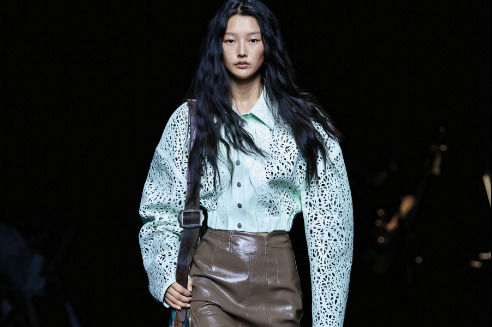When therapy comes with fur
From counseling centers to college campuses, therapy animals are playing a growing role in mental health care across China.

Campus companions
"Traditional counseling usually only steps in after problems emerge, while nature-based therapy, by contrast, takes a preventive approach," said Liu Junjun, an associate professor at the Student Health and Counseling Center at Hubei University.
In 2021, Liu and her colleagues noticed that many university students across China were forming strong bonds with campus animals. This observation inspired them to explore how these natural companions could play a role in mental health education.
They went on to establish "pet counseling stations" at all 27 schools within the university. These spaces feature a variety of animals — such as cats, tortoises, and fish — as well as plants like carnations and ginkgo trees.
"Interacting with these living beings gives students a more tangible sense of life," Liu explained.
Each school selects animals or plants based on its unique identity. At the School of Philosophy, for example, students adopted a tortoise named "Xuanwu", a mythical Chinese creature often depicted as a tortoise intertwined with a snake.
"The tortoise represents 'slow philosophy'," said Tu Jingyi, a 21-year-old student. "In today's fast-paced world, Xuanwu's calm presence reminds us to slow down and maintain our own pace."
Tu described the school's counseling station — where Xuanwu lives — as a cozy space filled with plants and sofas. It opens every Wednesday afternoon, offering students a quiet spot to study or simply watch the tortoise.
Tu and her peers also organize activities centered around Xuanwu. These gatherings help students unwind and encourage them to communicate with one another.
"Once, we spent over two hours just talking — starting with tortoise facts and eventually opening up with personal stories," Tu recalled. "Most of us didn't know each other at first, but by the end, everyone felt relaxed and connected."
Liu shared the story of a student with depression who found comfort through interacting with the ginkgo trees, affectionately known as the "pets" of the School of Art. Gradually, her mental health improved, and she was able to return to her studies.
"These activities are open to everyone, so students with mental health challenges never feel singled out," Liu said. "This helps reduce the self-stigma that often comes with mental illness."




































